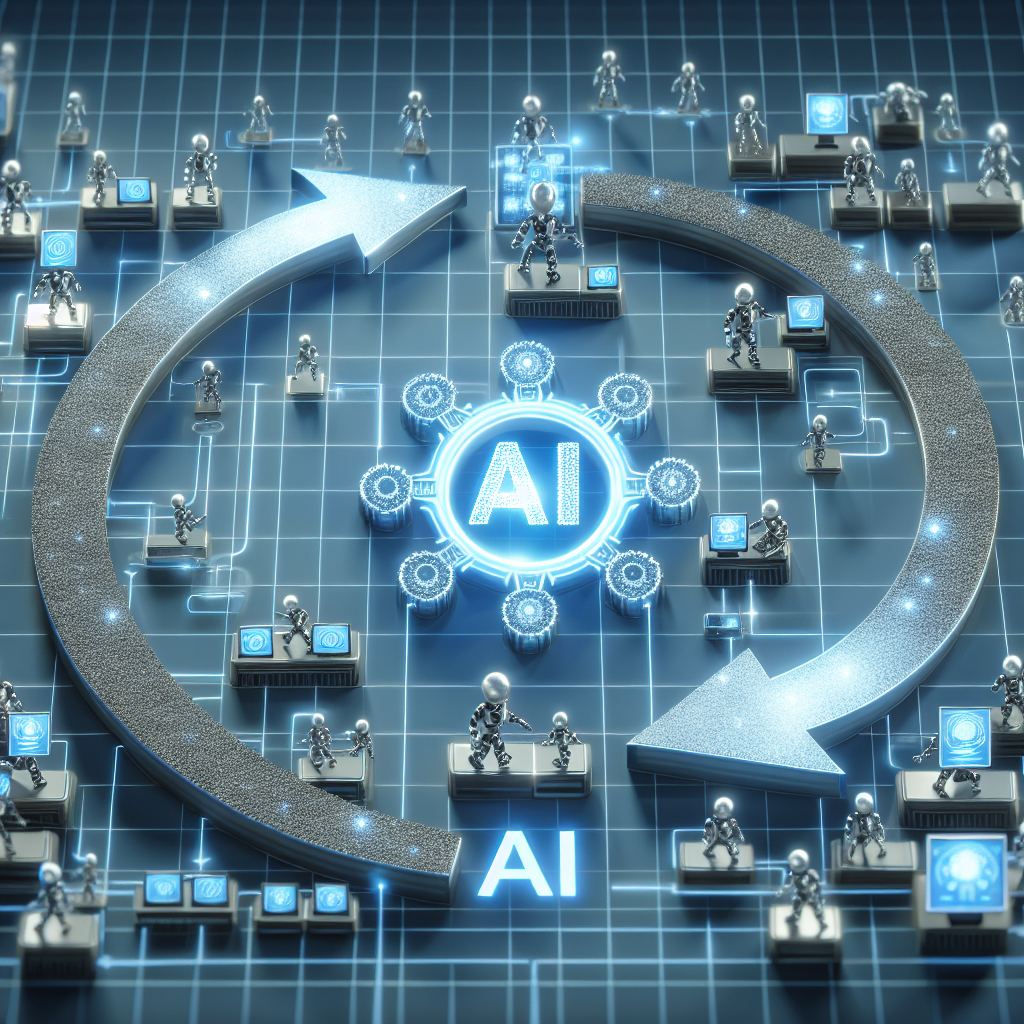Implementing AI for Agile Project Delivery and Iterative Development
Agile project delivery and iterative development have become increasingly popular in the software development industry due to their flexibility, efficiency, and adaptability to changing requirements. These methodologies allow teams to break down complex projects into smaller, manageable chunks, prioritize tasks, and deliver working software in shorter cycles. However, as projects become more complex and the volume of data grows, it can be challenging for teams to keep up with the pace of development and ensure quality.
This is where Artificial Intelligence (AI) comes in. AI has the potential to revolutionize the way teams deliver projects by automating repetitive tasks, providing real-time insights, and predicting potential risks and opportunities. By integrating AI into agile project delivery and iterative development, teams can streamline their processes, improve decision-making, and ultimately deliver better products faster.
Benefits of Implementing AI for Agile Project Delivery and Iterative Development
1. Automation of repetitive tasks: One of the key benefits of AI is its ability to automate repetitive tasks that can be time-consuming for development teams. For example, AI-powered tools can automatically test code, identify bugs, and suggest improvements, freeing up developers to focus on more strategic tasks. This not only accelerates the development process but also reduces the likelihood of human error.
2. Real-time insights: AI can provide teams with real-time insights into project progress, team performance, and potential roadblocks. By analyzing data from multiple sources, AI can highlight areas that require attention, such as bottlenecks in the development process or team members who may be struggling with their workload. This allows teams to make informed decisions quickly and adapt their approach as needed.
3. Predictive analytics: AI can also help teams predict potential risks and opportunities before they arise. By analyzing historical data and trends, AI can identify patterns that may indicate future challenges or opportunities. For example, AI can predict when a project is likely to go over budget or when a team member may be at risk of burnout. This allows teams to proactively address issues before they become major problems.
4. Improved collaboration: AI can facilitate collaboration among team members by providing a centralized platform for communication, file sharing, and project management. By integrating AI-powered tools into their workflow, teams can streamline communication, track progress, and ensure that everyone is on the same page. This can help prevent misunderstandings, reduce delays, and improve overall team cohesion.
5. Enhanced decision-making: AI can help teams make better decisions by providing data-driven insights and recommendations. By analyzing data from various sources, AI can identify trends, patterns, and correlations that may not be immediately apparent to human analysts. This can help teams prioritize tasks, allocate resources effectively, and make informed decisions that are more likely to lead to successful outcomes.
FAQs
Q: How can AI be integrated into agile project delivery and iterative development?
A: AI can be integrated into agile project delivery and iterative development through the use of AI-powered tools and platforms. These tools can automate repetitive tasks, provide real-time insights, and predict potential risks and opportunities. Teams can incorporate AI into their workflow by selecting the right tools, training team members on how to use them effectively, and continuously monitoring and optimizing their AI systems.
Q: What are some examples of AI-powered tools that can be used for agile project delivery?
A: There are many AI-powered tools available that can be used for agile project delivery, including automated testing tools, code review tools, project management platforms, and predictive analytics tools. Some popular examples include Jira, Trello, GitHub, and Microsoft Azure DevOps. These tools can help teams streamline their processes, improve collaboration, and deliver better products faster.
Q: How can AI help teams improve decision-making in agile project delivery?
A: AI can help teams improve decision-making in agile project delivery by providing data-driven insights and recommendations. By analyzing data from multiple sources, AI can identify trends, patterns, and correlations that may not be immediately apparent to human analysts. This can help teams prioritize tasks, allocate resources effectively, and make informed decisions that are more likely to lead to successful outcomes.
Q: What are some potential challenges of implementing AI for agile project delivery?
A: Some potential challenges of implementing AI for agile project delivery include data privacy concerns, lack of AI expertise within the team, integration issues with existing systems, and resistance to change from team members. To overcome these challenges, teams should prioritize data security, provide training and support for team members, carefully evaluate AI tools before implementation, and communicate the benefits of AI to the team.
In conclusion, AI has the potential to revolutionize agile project delivery and iterative development by automating repetitive tasks, providing real-time insights, predicting potential risks and opportunities, improving collaboration, and enhancing decision-making. By integrating AI into their workflow, teams can streamline their processes, deliver better products faster, and stay ahead of the competition. However, it is important for teams to carefully select AI-powered tools, train team members on how to use them effectively, and continuously monitor and optimize their AI systems to maximize their potential benefits.

